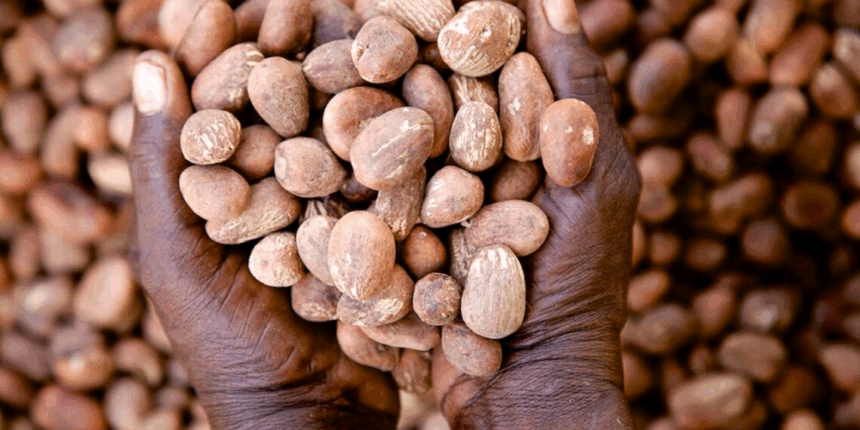-
Shea nut six-month export ban causes market shock and income losses
-
Exporters face potential contract defaults and loan repayment risks
-
CPPE urges phased policy and stakeholder engagement to protect rural livelihoods
The Federal Government’s sudden six-month ban on raw shea nut exports has triggered a sharp drop in market prices, falling by over 30%, while disrupting Nigeria’s shea value chain, the Centre for the Promotion of Private Enterprise (CPPE) has warned.
While intended to boost local processing and industrial growth, the immediate effect of the ban has left farmers, aggregators, exporters, and logistics operators grappling with severe economic consequences.
ATTENTION: Click “HERE” to join our WhatsApp group and receive News updates directly on your WhatsApp!
According to Dr. Muda Yusuf, CEO of CPPE, “Shea nut prices have fallen by over 30% since the ban, eroding incomes of farmers and aggregators.”
For many rural producers, shea nut sales constitute a vital seasonal income stream. The abrupt drop leaves them unable to cover costs, let alone make a profit.
Aggregators, serving as intermediaries between farmers and exporters, are similarly affected.
With export channels closed overnight, unsold stockpiles are accumulating, and many operators risk defaulting on bank loans used to finance procurement.
The ripple effect extends beyond the farm gate. Exporters operating on tight margins, reliant on international contracts, now face potential legal risks due to non-fulfilment.
CPPE warns that “existing export contracts face potential default, exposing exporters to litigation and damaging Nigeria’s credibility in global markets.”
READ ALSO: Nigeria Imposes Six-Month Shea Nut Export Ban Amid Market Concerns
Bank financing, essential for aggregation and logistics, is under strain. With the export pipeline blocked, repayment capacity is compromised, raising the prospect of widespread loan defaults in the sector.
Nigeria’s non-oil export sector generated over $3 billion in revenue in the first quarter of 2025 alone.
However, abrupt policy shifts like the shea nut ban heighten uncertainty and risk, deterring investment in the sector and beyond.
“The policy effectively penalises primary producers to benefit processors, creating a zero-sum dynamic that undermines inclusive growth,” Dr. Yusuf said.


